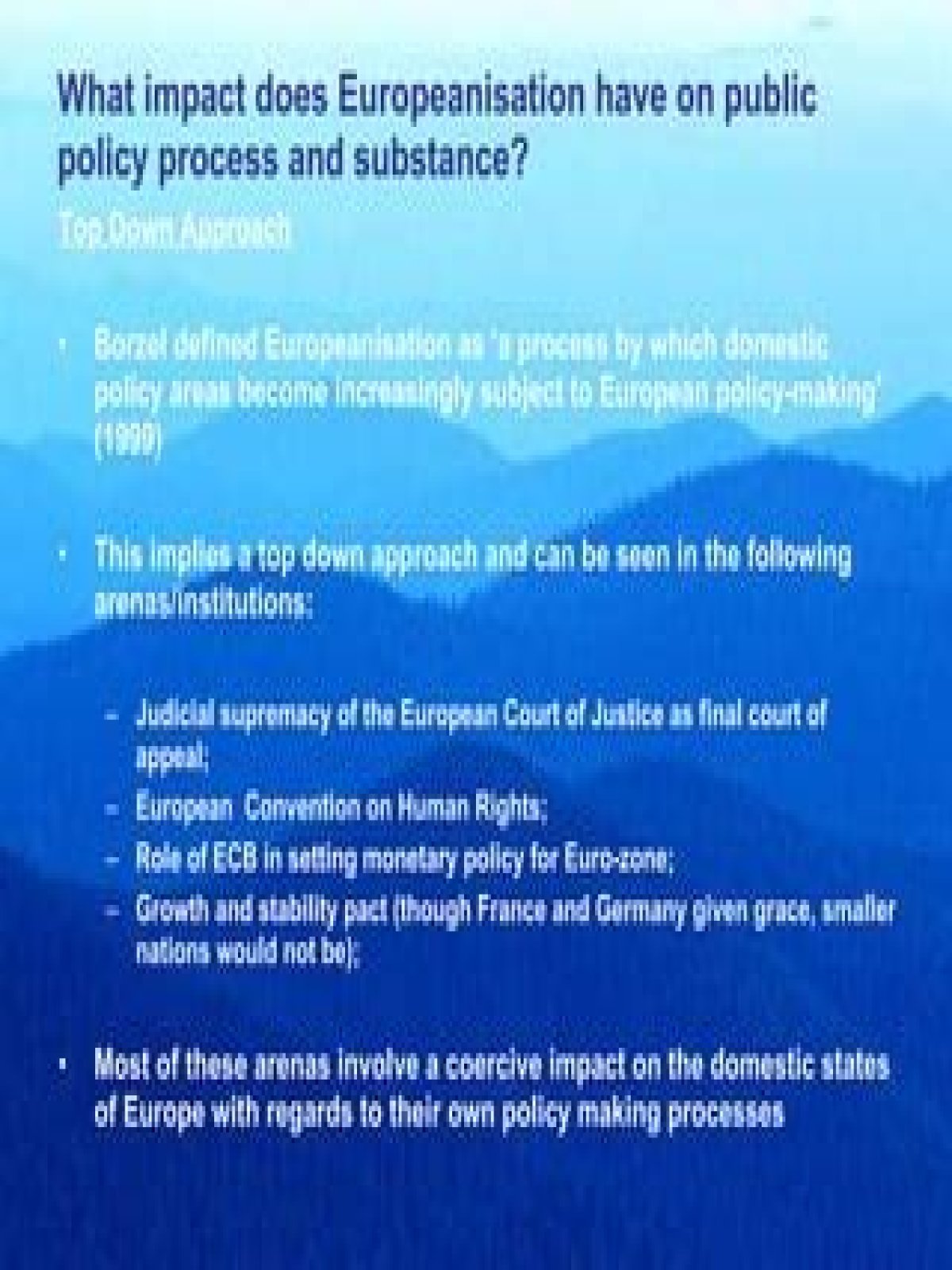What does the word Europeanisation refer to?
Europeanisation (or Europeanization, see spelling differences) refers to a number of related phenomena and patterns of change: The process in which a notionally non-European subject (be it a culture, a language, a city or a nation) adopts a number of European features (often related to Westernization).
What is the European integration process?
European integration is the process of industrial, economic, political, legal, social and cultural integration of states wholly or partially in Europe or nearby. European integration has primarily come about through the European Union and its policies.
What is an example of Europeanization?
– Europeanization as changes in external territorial boundaries. This involves the territorial reach of a system of governance and the degree to which Europe as a continent becomes a single political space. For example, Europeanization is taking place as the European Union expands its boundaries through enlargement.
What were some of the important after effects of the collapse of the Soviet Communism in 1991?
What were some of the important after-effects of the collapse of Soviet communism in 1991? As a result of these changes, Eastern Europe began to transition from communism to democracy. As the iron rule of the former Soviet state was lifted, longstanding ethnic conflicts erupted in some formerly communist states.
What is the difference between Asean and EU?
The first difference is that ASEAN is an intergovern- mental organisation. The EU, in contrast, is a supranational organisation in which its member states have agreed, in certain areas, such as trade, to pool their sovereignties.
Why was this considered vital to bringing lasting peace to Europe?
Why was this considered vital to bringing lasting peace to Europe? Schuman’s plan was to align Europe’s nations economically and politically, and the establishment of friendly ties between Germany and France was an important part of this process.
What does the Berlin Wall symbolize?
Professor Harrison: The wall symbolized the lack of freedom under communism. It symbolized the Cold War and divide between the communist Soviet bloc and the western democratic, capitalist bloc. Conservative West Germans called the Berlin Wall a “wall of shame” and said that it illustrated the bankruptcy of communism.
What is Intergovernmentalism and Supranationalism?
Supranationalism refers to a large amount of power given to an authority which in theory is placed higher than the state (in our case this authority is the European Union). Intergovernmentalism focuses on the importance of member states in the process of creating EU-wide regulations.
What is ASEAN’s legal basis?
Built upon this legal and institutional infrastructure, the legal parameters of ASEAN’s legal authority are set by the four fundamental principles governing the association, namely: non-interference; comprehensive security; decision-making by consultation and consensus; and shared commitment and collective …
